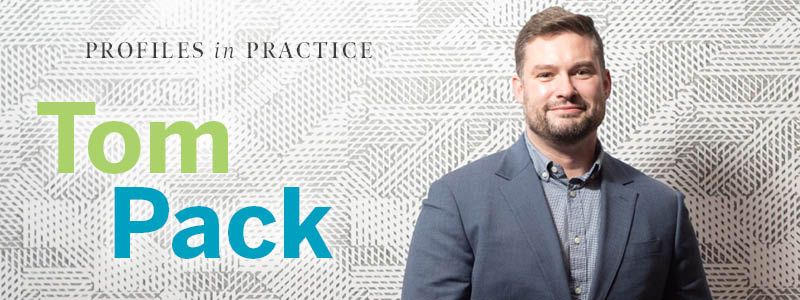
Although he had no attorneys—or even college graduates—in his immediate family, Tom Pack’s first exposure to the legal system came at an early age when his father was injured in a workplace accident and had an arduous experience with the workers’ compensation system. His father, formerly a carpenter, then went to pharmacy school on an Indian Health Service-funded scholarship, instilling the value of an education in Pack at an early age. Pack’s father graduated from college just three months before Pack started college and began working at a tribal hospital in rural Oklahoma. Seeing his father persevere through a legal fight and many subsequent years of education to create a stronger future for his family—rooted in his values as a citizen of the Cherokee Nation—was an example that fueled Pack’s own educational journey.
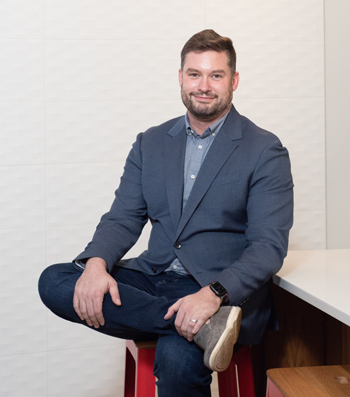 Pack is now a shareholder at Greenberg Traurig in Minneapolis. He attended East Central University in rural Oklahoma, majoring in political science and minoring in Spanish. Pack always had an interest in law and had his sights on the University of Oklahoma Law School when a pivotal experience happened his junior year—the Truman Scholarship, a federally funded fellowship program that aims to develop public service leaders. This good fortune opened his vision of the future to encompass more than small-town Oklahoma.
Pack is now a shareholder at Greenberg Traurig in Minneapolis. He attended East Central University in rural Oklahoma, majoring in political science and minoring in Spanish. Pack always had an interest in law and had his sights on the University of Oklahoma Law School when a pivotal experience happened his junior year—the Truman Scholarship, a federally funded fellowship program that aims to develop public service leaders. This good fortune opened his vision of the future to encompass more than small-town Oklahoma.
Pack spent a summer interning in Washington, D.C. at the Department of Defense through an internship program for American Indian and Alaska Native students. He then spent four months between his junior and senior years of college backpacking from Buenos Aires to Bolivia. This was another formative experience. Imagine trying to navigate without cell phones. For example, there is a convoy of buses being burned at the Bolivian border as part of a protest and you have a flight out of Peru the next day, so what do you do? (Answer: Walk to the Peruvian border four kilometers away.)
Pack headed back to Washington after graduation, with a youthful determination to escape small-town life. After a stint with the United States Department of Health and Human Services doing rural and American Indian health policy work, Pack grew frustrated with the glacial pace of policymaking work. This reconfirmed his interest in the law and led him to law school at Stanford in California. Meeting his now-husband who was a medical student at Stanford, he began his practice in San Francisco doing intellectual property litigation at a large firm. After a few years, Pack followed his partner to the Twin Cities where he completed his medical residency and has since also become rooted in the Twin Cities—as a dermatology professor at the University of Minnesota Medical School.
Pack’s practice shifted from intellectual property litigation to the world of medical device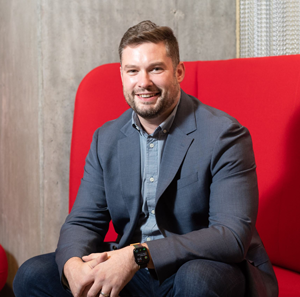 product liability defense, noting that both patent litigation and product liability defense satisfy that “nerdy science-y” part of him. His pro bono work with asylum refugees referred from the Advocates for Human Rights, primarily those facing persecution and violence due to their LGBTQ+ status, is a deeply satisfying and flexible addition to his primary practice.
product liability defense, noting that both patent litigation and product liability defense satisfy that “nerdy science-y” part of him. His pro bono work with asylum refugees referred from the Advocates for Human Rights, primarily those facing persecution and violence due to their LGBTQ+ status, is a deeply satisfying and flexible addition to his primary practice.
The best advice Pack received in law school was guidance he did not heed at first. A clinical professor consistently reminded students to learn how to practice law in their own way. The professor explained that people will try to fit you into one mold or another—to try to force you to practice in the same way others do. Instead, you need to figure out your own identity and style as a lawyer.
[Pack] eventually realized he would not succeed by being someone else—he needed to figure out how to practice in his own way, just like his professor said.
Pack spent the first few years of his practice ignoring that advice, trying to be like other hard-hitting civil litigators with big personalities. He eventually realized he would not succeed by being someone else—he needed to figure out how to practice in his own way, just like his professor said. But between large matters and conflicts with some pro bono work, finding one’s voice at a large law firm can be difficult.
Pack found pro bono work with asylum seekers a conflict-free way to get serious litigation experience and work for a cause he cared deeply about. Pack took his first asylum case as a second-year associate. He worked on behalf of a Mexican lesbian couple, and their family, who fled violence including on account of their sexual orientation. Winning their case was one of the most memorable and fulfilling days of his practice as an attorney.
For as passionate as he is about his work on behalf of asylum-seekers, Pack remains a man of many interests and abilities. He possesses deep knowledge of and dedication to the Cherokee Nation and indigenous communities more broadly, the LGBTQ+ community, his church in Uptown, and the legal community.
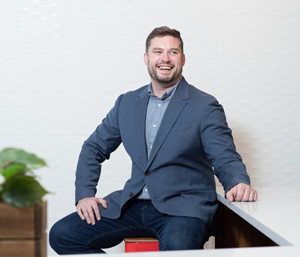 Pack’s dedication to the profession is unmistakable—he takes seriously and delights in his work with junior associates and takes time to offer advice to younger attorneys generally. “The legal industry is hungry for young leadership and young talent,” he notes, “and there is a legitimate fear that the next generation is not inclined to be involved in the types of organizations that made the Twin Cities legal community so vibrant and close-knit.”
Pack’s dedication to the profession is unmistakable—he takes seriously and delights in his work with junior associates and takes time to offer advice to younger attorneys generally. “The legal industry is hungry for young leadership and young talent,” he notes, “and there is a legitimate fear that the next generation is not inclined to be involved in the types of organizations that made the Twin Cities legal community so vibrant and close-knit.”
Pack recommends making time for bar leadership or nonprofit service, such as with the Advocates for Human Rights. “Get on a bar association committee, get on a committee for Twin Cities Diversity in Practice, or the Federal Bar Association,” he says. “That’s the kind of networking that builds your career, serves the profession, brings you work if you are in private practice, and that will help you feel connected to the legal community here.”
“Networking has all upside and no downside.”
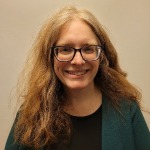
By Jennifer Dailey
jennifer.dailey@courts.state.mn.us
Ms. Dailey has worked for the Judicial Branch for over 22 years, first as a law clerk at the District Court in Goodhue County and then with the Commitment Appeal Panel (CAP). She has specialized in working with state/tribal court relations, then children’s justice, and most recently with the processing of cases for individuals indeterminately civilly committed.